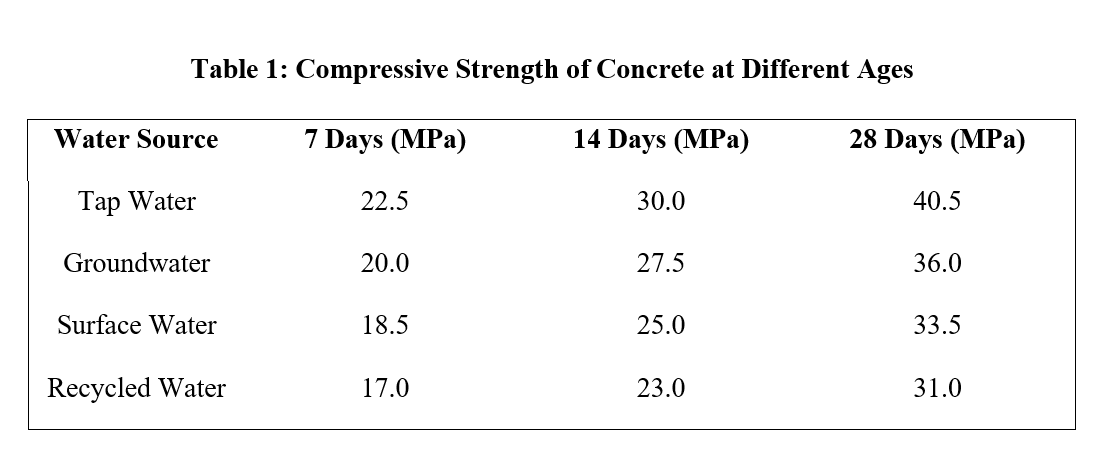The Effect of Different Water Sources on the Quality of Concrete for Infrastructure Projects
DOI:
https://doi.org/10.71146/kjmr105Abstract
This research explores the impact that usage of tap, ground, surface, and recycled water sources has on concrete in infrastructure projects. Water content affects the entire process of hydration and the mechanical properties of concrete, including strength and toughness, as evidenced by a moderate increase in W/C ratio, as shown in Table 4. In this study, the effects of different water sources on the performance of ordinary Portland cement concrete and blended concrete boils are analyzed through a comparative experimental approach. The results indicate that tap water exhibits the highest concrete quality, but groundwater, surface water, and recycled water reduce performance because of contamination by salts and organic matter. The information given gives an indication of the importance of water quality evaluation in the production of concrete, and it was established that although treated and recycled water can be used in concrete production, there has to be proper control of the quality of the water used. This research reveals the importance of water quality in meeting sustainable and durable concrete that is paramount in modern structures.
Downloads

Downloads
Published
Issue
Section
License
Copyright (c) 2024 Manzoor Ali Chandio, Sultan Shaikh, wali Mohammad Chandio (Author)

This work is licensed under a Creative Commons Attribution 4.0 International License.






